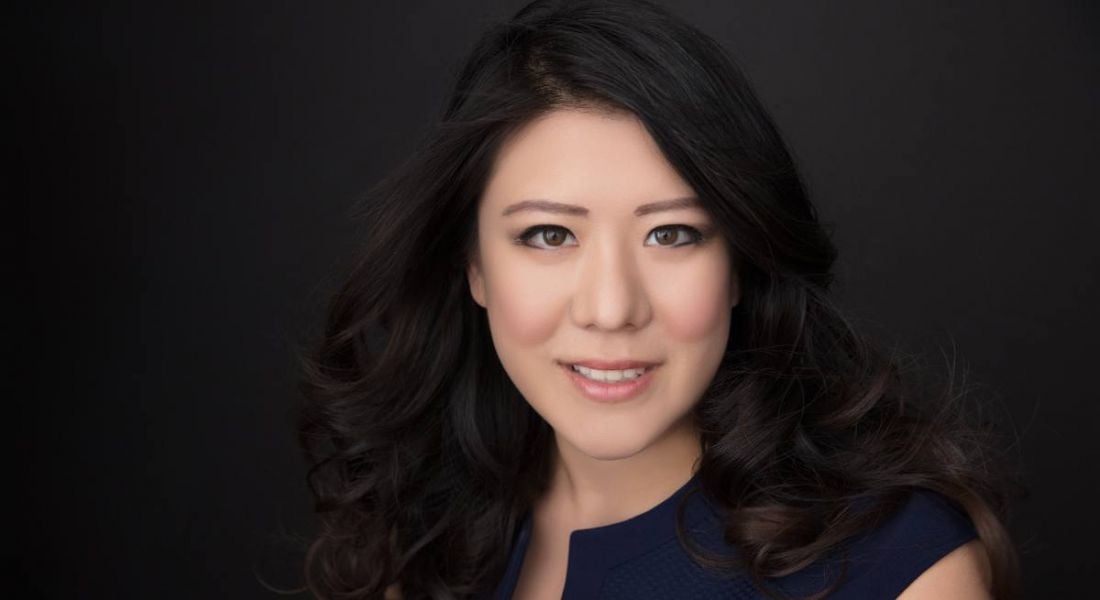Nancy Wang founded Advancing Women in Product to change the gender ratio for women in tech.
As the first female product manager at Google Fiber, Nancy Wang has had plenty of experience of the trials and tribulations that come with being a woman in the tech industry.
Wang is now the lead product manager for the start-up Rubrik and the founder of Advancing Women in Product (AWIP), a non-profit organisation that advocates for diversity in tech, and advancing female product and tech leaders through professional education and executive mentorship.
Wang’s interest in STEM flourished from early life, as her parents were both interested in science and maths. “My father was a materials science engineering professor in China and my mother a high school maths teacher,” she said. “I learned from an early age that [STEM] wasn’t just about solving problems, it was also about having fun discovering and understanding how things worked around me.”
Wang had an unconventional start to her product management career, starting as a college graduate working at the US Department of Health and Human Services.
“From there, I was fortunate to land a product management role at Google, which opened my eyes to the world of tech and fast-paced start-ups, something I hadn’t been involved in beforehand. My passion for technology and being a pivotal part of a product life cycle led me to my current position as lead product manager at Rubrik.”
‘I have found that being a woman in tech makes me stand out, and sometimes not for the right reasons’
– NANCY WANG
Wang has previously talked about being the first and only female product manager at Google Fiber between 2014 and 2016, and she says it’s no surprise that women in tech continue to be underrepresented at every stage of the talent pipeline.
“I have found that being a woman in tech makes me stand out, and sometimes not for the right reasons. I think it can be easy for unconscious biases to take hold, and it’s both genders’ responsibility to make sure we evaluate everyone on the merit of their contributions,” she said.
“I think that recent movements have brought this issue to light and many companies are now adopting their own ‘women in tech’ groups. From Girls who Code to Hackbright Academy, there are so many non-profits and programmes that are stepping up to change the status quo in tech.”
Wang added that while so much more needs to be done, the next step is to get to the root of the problem through adequate access to education, training and mentorship. “There are many talented women out there, and if we can provide them with the right opportunities and mentorship, they can achieve so much more.”
It seems that for women in tech, steps are being taken in the right direction. From reporting on pay gaps to the recent California law that requires public companies to have a woman on their board, positive changes are occurring.
However, Wang says these are still just solutions to individual points. “We need to find ways to target the real problem at hand. To start, we really need to understand why more women don’t pick STEM majors, which prevents them from pursuing STEM careers later on,” she said.
“The tech industry has also experienced a decrease in women making the transition from mid-career to executive leadership. I believe that to increase women in technical roles, there needs to be programmes that provide mentors, role models and skills-based training, which are gaps that AWIP aims to solve.”
Wang believes the saying ‘out of sight, out of mind’ plays a major role in overlooking the issues faced by women in tech. “Because in many industries the gender ratio is still pretty unbalanced, it can be hard to truly feel empathy with what females in tech are going through. That’s why it’s so important for companies to have diversity and training programmes that will educate their workforce on the importance of being open, transparent and 100pc meritocratic, regardless of gender.”
Career advice
Reflecting on what she wishes she knew early in her career, Wang would have taken more risks. “My advice to young people entering any industry is that you can recover from any career move. If you see an opportunity you think is a fit, take the risk,” she said. “I know that it’s easier said than done because changing careers or taking on a new job is scary, but never be afraid to take that job that you’re really excited [about].”
From a productivity point of view, Wang is best poised to offer advice, working as a product manager in her full-time job as well as being the founder of AWIP.
“With most days pulling me in so many different directions, I try my best to meditate in the morning. It gives me clarity of thought and usually I notice a corresponding spike in productivity for that day. It’s amazing how much can be accomplished when your mind is clear and focused.
“I also have found Boomerang to be a lifesaver when it comes to managing my workplace communication, especially when you have 40 communication threads at any given point in time,” she said. “It’s definitely helped increase my efficiency and stay on top of my work projects.”
Wang also reiterated the value of role models and said that AWIP is dedicated to building a community that empowers other women in tech to move up the career ladder.
“I’ve personally discovered that having role models and executive mentors has made a huge impact on my career goals and trajectory. A key component is also offering ways in which women can continue to grow in their skills and evolve in their roles.”
Updated, 4.43pm, 4 February 2019: This article was updated to state that Nancy was the first female product manager at Google Fiber, not Google.




